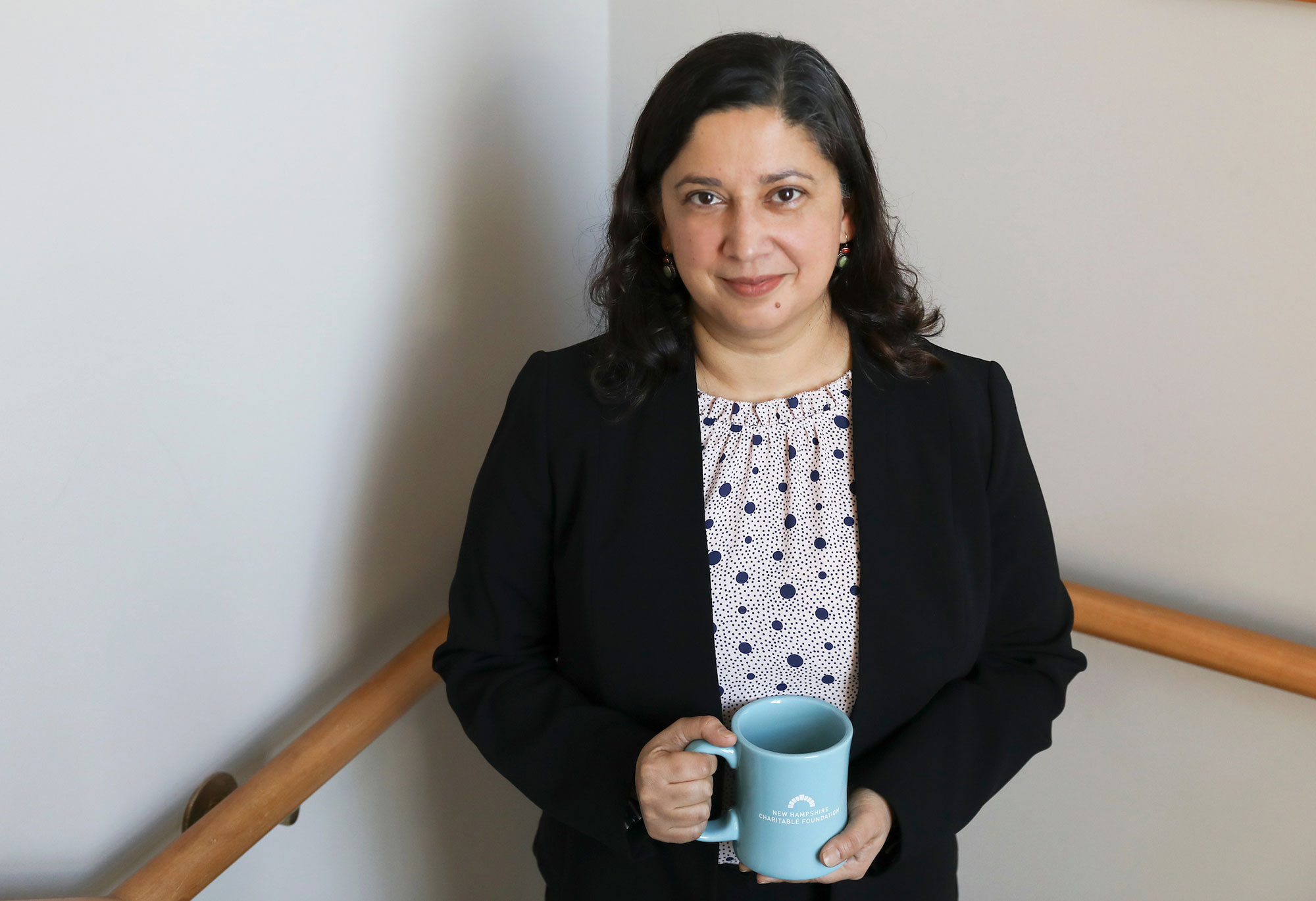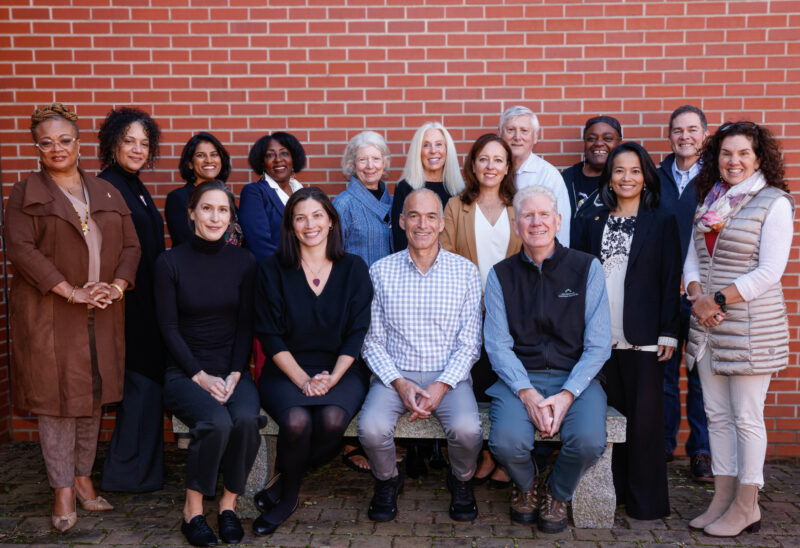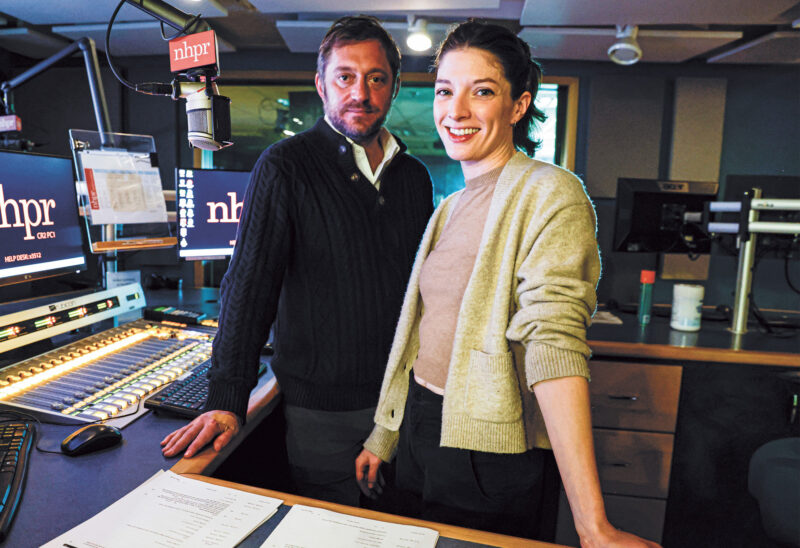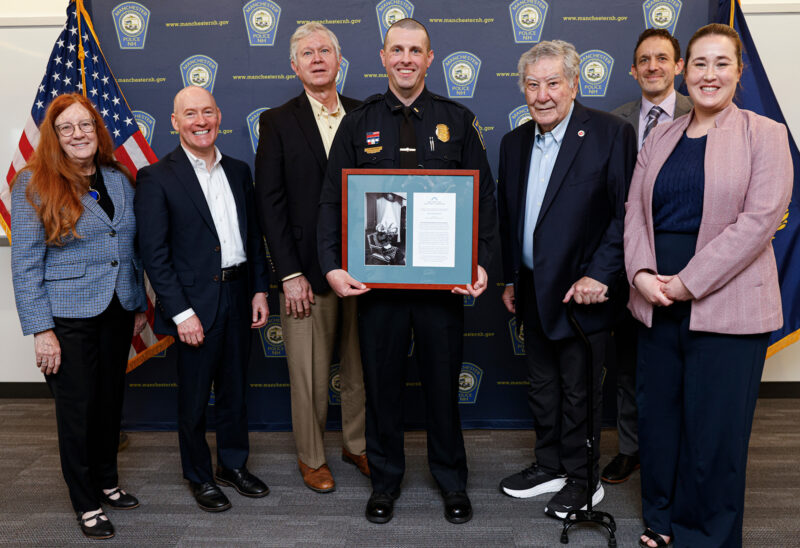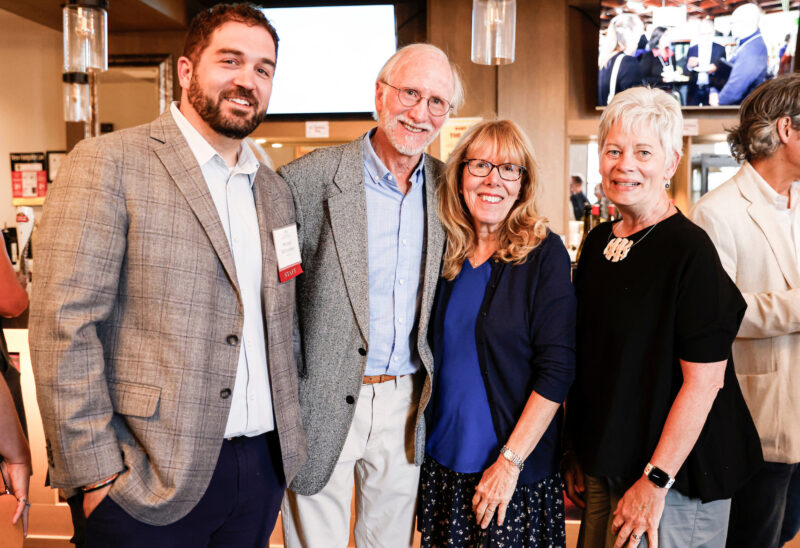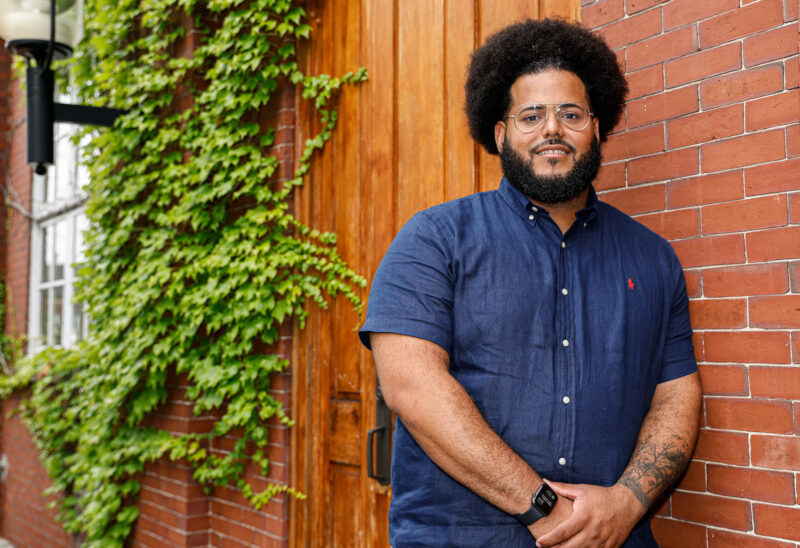Meena Gyawali joined the Foundation in December as a Senior Program Officer. She has served as director of grants and compliance at Families in Transition and has a background in planning and community development. She talked to the Foundation’s Lois Shea about urban planning, how high school drafting classes led to her hobby of painting landscapes from Manchester’s Millyard and why everyone should visit New Hampshire’s Queen City. Meena lives in Manchester with her family.
LS: You are like a renaissance woman. You bring this powerhouse array of experiences and skills to the Foundation. You have done nonprofit work, urban planning, worked in finance and for the CDFA. Why is community philanthropy the right next chapter for you?
MG: It was grantmaking with a racial justice lens that really excited me because there is not a lot of that happening in New Hampshire. When I saw an entity like the Foundation willing to take a lead on that, that is what drew me to this position.
LS: Tell me about what your hopes are in your role for that work.
MG: Right now, just to go out and navigate and assess what the needs are. The landscape has changed in the last few years. I am starting to see younger generations that are more vocal and I am so proud and taken aback that they have a voice in this state, that they are pushing back. We were not always allowed to do that before — and also preserve our jobs and preserves ourselves. Right now I want to go out and get a really good sense of what is going on in the state and I don’t mean just Manchester, Nashua and Concord. Things are changing, demographics are changing.
I come from the planning background and federal funding background where you could not give out a single dollar without a public participation process. So that is my background, and it is also about bringing in other funders and about policy and about connecting people so that they have a sense of connection and belonging here and they don’t leave here. So hopefully some of this is also building a sense of community and a sense of home in New Hampshire.
LS: You got your Master’s in Public Administration at UNH in Manchester, and did your thesis on Manchester’s neighborhoods. What are some things about Manchester that fascinate you?
MG: I did Master’s thesis in neighborhoods because I was also doing neighborhood planning. The city had spent so much time trying to bring back downtown. Manchester was a company town and once the mills shut it was like ‘how do we revitalize ourselves?’ One of the first things that happened was the zoning in the Millyard changed to mixed-use instead of being industrial only. And that was a catalyst for Manchester to start redefining itself from a mill town into something else.
Before the Amoskeag Manufacturing Company came in, there were all these little villages that were around the outskirts. The manufacturing company came in and built the buildings, they created all the workforce housing, they decided where the churches would go — all of it. They also laid out the city in a grid. So when you look at it from an aerial perspective, you can see where these villages were because they don’t have the grid — they have these little ziggy spaghetti roads and the grid just went around it. Behind Eliot Hospital there is one of those neighborhoods.
And I like the fact that Salmon Street ends at Amoskeag Falls, where fishing used to happen.
I like Manchester because it has all the pieces of the big city but at a manageable scale. From a planning perspective, it’s just this nice little microcosm where you can tackle all these things. And there is enough diversity where you learn. Manchester is a small enough scale that you can actually have an impact.
LS: You do these incredible paintings of Manchester’s Millyard. Tell me about those, and why those cityscapes inspire you to paint.
MG: I took four years of drafting classes in high school in Chicago. And I was contemplating between social work and architecture. And urban planning was urban design plus dealing with the human aspects, it sort of comes together. So that is why I paint. I always wanted to be an architect but was afraid of taking structural engineering classes.
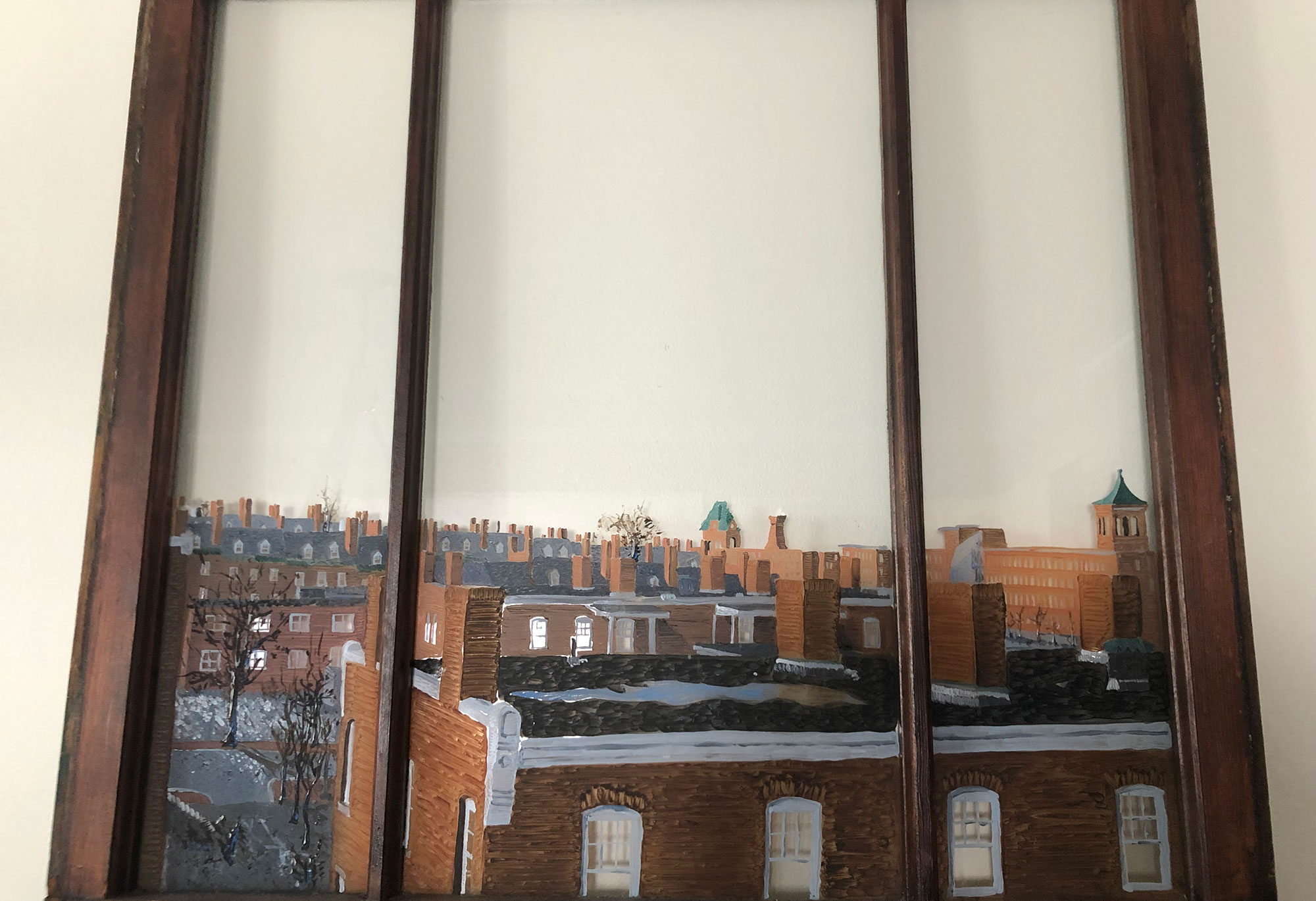
Painting of the Millyard in Manchester, NH, by Meena Gyawali. (Courtesy image.)
LS: You have also done a little farming on the side. Tell me that story.
MG: My farmer used to come to the city to the farmers’ market in Manchester and I used to live down the street. I became good friends with him and his wife and he asked me to come work in the farm. And I wanted to understand, from a planning perspective, the bigger pieces of the region and food access and farming. Both of my grandparents have farming roots in Nepal. I was brand new in New Hampshire and looking for friends and met these friendly people and I decided to be like ‘okay, here’s this kooky looking old guy inviting me to come out to Warner, wherever the heck that is.’ So I started working there on weekends, volunteering and just taking home bags of groceries. And I learned about the Northeast Organic Farming Association and the concept of food co-ops and sustainable agriculture. It was good learning and a good friendship. It was about living in a space and trying to understand not just the city part but the rural part and the agriculture part.
LS: We all have a “why New Hampshire story,” if we are transplants, like me, or if our families have been here forever and we keep choosing this place. What is your “why New Hampshire” story?
MG: I got out of college and I was working three jobs, including working in a homeless shelter, and I had a night job managing a house for people with developmental disablities. I had a friend out here and Southwest had just started $99 round-trip tickets from Chicago, and I flew out and said ‘let’s see what’s out there.’
My husband Dan had just come here at the same time to work at the Union Leader. He came here during an election year working for the Associated Press and stayed. Then he and others started the Hippo.
My parents moved here right before Covid, which was really nice to have them here. My mother was helping with homeschooling when schools closed down.
LS: What is a New Hampshire experience you bring family and friends to when they are visiting?
MG: Relatives from a landlocked country, Nepal, I take them to the ocean. I take them to Portsmouth. They look at mountains and say ‘Really? you call these mountains?’
My husband started hiking, and he started taking me out to do the 4,000-footers. Growing up back home, you have tigers in the woods! You do not go in the woods. My dad was stationed in southern Nepal, and there were some areas you didn’t go because that’s where the man-eating tigers were. It has taken me like 20 years to get over the fear of tigers in the woods.
When I have visitors who come from Nepal, they see all the woods and they are like ‘how far away are the wild animals here?’
LS: You have a degree in urban planning and live in Manchester – what are some opportunities you see for Manchester going forward?
MG: I think it’s nice that there aren’t many vacant spots in downtown, that the Millyard is full. There are 40,000 non-traditional college students who go to Manchester between SNHU and UNH, so it is an education center. I see huge opportunities in the neighborhoods as they are diversifying. To renovate some old housing stock and create communities within neighborhoods. And the old rail lines are getting converted into bike trails, it’s such a great way of connecting the city.
It is really a great little town. Come hang out! I hope people come and explore Manchester. We have so many great ethnic restaurants and grocery stores. The Millyard has so much history, there are so many arts and cultural institutions. Urban planning does not happen overnight, but it’s really a great little place and I see it heading in the right direction. It’s a little cosmopolitan place.
I am also proud that there are so many people who are really committed to this town. They could have left and gone to Bedford but they have decided to stay here and invest here and put their kids in the schools here, you know? It’s easy to leave, it’s harder to stay and make change.
And I am not living anywhere where there is no hole-in-the wall taco place!

